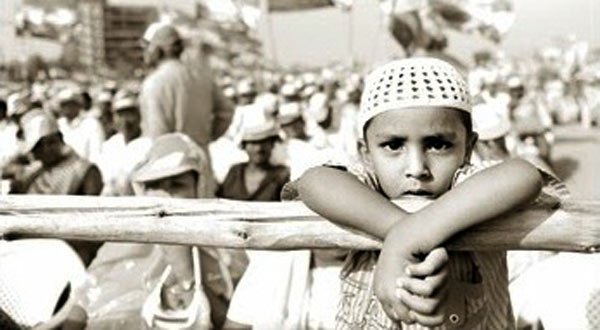 What a travesty of secularism and justice! The Constitution’s position of not providing reservations on the ground of religion is being used to deny a big population their rights.
What a travesty of secularism and justice! The Constitution’s position of not providing reservations on the ground of religion is being used to deny a big population their rights.DR JAVED JAMIL
[dropcap]I[/dropcap]n all probability, the new Lok Sabha will have one of the lowest if not the lowest representation of Muslims in the history of Independent India. With BJP expected to secure its highest Lok Sabha tally so far, and all other “secular” parties except BSP not giving enough tickets to Muslims (less than half of the 15 pc they deserve), the Muslim tally may be well below 30.
When parties are asked to explain why they have not given tickets to Muslims, their usual refrain is that “they do not allot tickets on religious basis”. Similar argument is used in denying Muslims reservation in jobs, the argument being that the Constitution does not provide reservations on the basis of religion.
What a travesty of secularism and the justice that secularism demands! The Constitution’s position of not providing reservations on the ground of religion is being used to deny a big Indian population their rights on the ground of religion. If the Constitution does not provide certain rights on the ground of religion, how can it deny on the same grounds?
Denial of rights on the ground of religion must now become the central point of Muslim struggle, which should be carried in a Court of Law, Parliament as well as on streets. Those who claim to be “secular” should be forced to support the position that Muslims cannot be denied their rights on the ground of religion. Denying on the ground of religion goes against the very foundation of secularism.
See what has happened. In the name of “castes”, 50 pc of Hindus have ensured reservation for themselves. The argument is that it is based on castes and not religion. What a blatant misuse of logic! Only Hindis are being given reservation ostensibly on the basis of caste, and the logic is that it has nothing to do with religion. Hindu dhobis, Gujjars, carpenters, weavers, sunaars, all have reservations; Muslim dhobis, Gujjars, carpenters, weavers, sunaars do not. And they say that it is religion based and not caste based.
Fancied arguments are found out for denying rights to Muslims. One such argument is that there are no castes in Islam. First, if reservation is given to SCs or OBCs, it is not merely because they belong to these castes. The main reason for reservation is the backwardness and not the caste.
Caste has been accepted as an additional basis because people belonging to a number of castes are almost all backward. This is also true of Muslims as a whole. If the chief criterion of reservation is ‘Backwardness”, almost all Muslims except a few (which can be excluded through creamy layer) are backward, and there is no justification why backwards can be denied reservation just on the ground of their religion.
If caste is accepted as the additional criterion, irrespective of what Islam says, the ground reality is that Indian Muslims have castes. While even most of the so-called higher castes are also sufficiently backward, almost all of the lower castes are backward.
Any community cannot become empowered unless it enjoys Political Empowerment, Ideological Empowerment, Social Empowerment and Economic Empowerment. Although, all of these need to be pursued simultaneously, there is absolutely no reason why political parties do not make urgent moves to politically empower Muslims.
This writer had made this one of the chief issues in his “Agenda 2014”, which was sent to all political parties several months before elections. While the demand attracted attention of Muslim activists, unfortunately Muslim organizations could not build enough pressure on parties to accept the demand of allocating 15 pc tickets to Muslims.
The Agenda had demanded that 15 pc seats should be allocated to Muslims, every party should ensure that 15 pc seats of Rajya Sabha from their quota must go to Muslims, and if their quota in Lok Sabha does not have the required representation of Muslims, they must compensate it through additional seats in Rajya Sabja.
Similar methodology must be adopted in states. With elections for Lok Sabha already entering the final phase, Muslim organizations must plan without delay demonstrations outside party offices protesting against the under-representation of Muslims in Lok Sabha, and stressing for compensation in Rajya Sabha. Without political empowerment, we cannot hope to succeed in other fields.
All opinions and views expressed in columns and blogs are those of individual writers and do not necessarily reflect the editorial policy of Caravan

